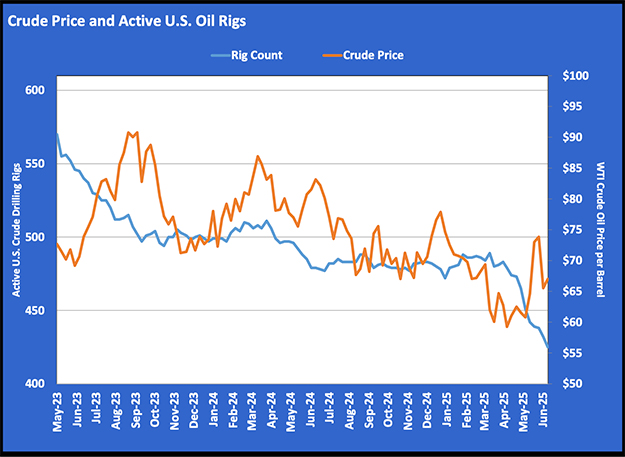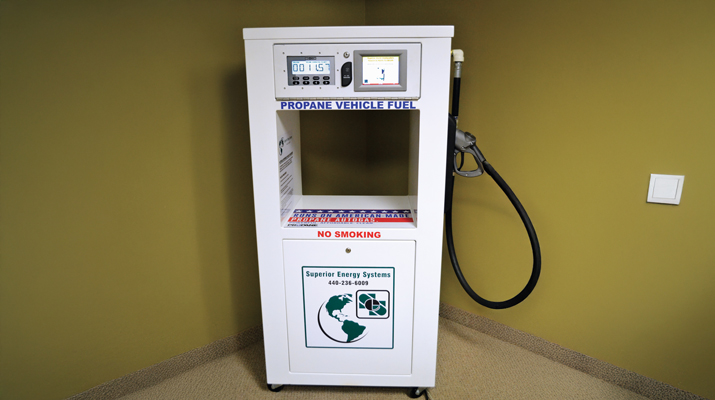Lessons learned during field inspections of propane operations
Several memorable statements have been made to me over the course of my 28 years as North Carolina’s LP gas engineer. Our inspectors have heard many more.
Most were from dealers and referred to something that came up during inspections. Some were from trainers and those holding a position like mine in other states.
Let’s take two statements together:
“What makes you qualified to tell me I have to fix it?”
“What makes it a violation because you say it is?”
North Carolina General Statute § 119-57, and some explanatory regulations, give inspectors the authority to schedule and conduct inspections, to look for violations and to push for corrections. There is additional wording to assess a civil penalty if corrections are not made, as determined by subsequent inspections. I expect any state that has an inspection program for LP gases has something similar.
Another, maybe implied, part of the dealers’ questions may refer to why the inspector says it is a violation. How does the inspector know when something is wrong?
All of our inspectors get training on our laws and regulations, the NFPA 58 LP gas code, including new editions, and some weights and measures rules. Besides, the LP gas code is written in English and intended to be understandable by anyone reading it, especially if they are familiar with the industry. Admittedly, some code language is not user friendly and needs interpretation.
“I just set it and wait for you to tell me to change it,” referring to setting a tank or dispenser with minimal attention to the code requirements.
The installer is responsible for following all of the rules during an installation. The inspector should identify anything that’s wrong, but some of those things are impossible to see, such as the pipe wall thickness or size of an anode bag on a buried tank. The installer must be responsible enough to provide the code’s intended level of safety without relying on an inspector to make it right. Also, it’s cheaper to do it right than to do it over.
“When the inspector comes on my lot, he’s working for me.” Negative. Inspectors are independent of any business organization at the site. They must be allowed to conduct their inspections free from intimidation and harassment, including foul and abusive language. But they are expected to follow site safety rules and farm biohazard instructions.
“I’ll fix it when it costs me something not to.” This statement, heard many times, led our legislature, encouraged by the state propane association, to modify our LP gas law, increasing civil penalty amounts. Also, we had an opportunity to automate our process for sending notices of violation, warning letters and penalty letters.
These statements seem unrelated, but they symbolize to me the apparent lack of concern or understanding by some employees:
“I set the wheel stops every time I get out.” Well, here’s one time I caught you when I just happened by your bobtail. And another inspector caught the same driver not setting his wheel stops twice in one hour.
“The OPD will tell me when the cylinder is filled correctly.” Yes, it usually will, but it is a mechanical device subject to failure. That’s why the NFPA 58 committee included a requirement that the OPD not be the primary method to determine when a cylinder is full.
“A 1,000-gallon tank is always 25 ft. from a building or property line.” Not true when it is a single tank. It can be as little as 10 ft. from a building and from a property line that may be built upon.
“The other inspector didn’t write it up. Why are you?” Inspectors are individuals. As much as we train and emphasize consistency, they sometimes do not focus on the same items. Experience also comes into play.
“It was in the engineer’s plans.” Engineers can miss the applicability of a code, as do some installers. Many engineers get corrective help when they submit their drawings for review. Tank installers should know from their training that they should look it up if they are not sure.
“If I had known there would be a test, I would have paid attention.” A dispenser employee said this when an inspector was investigating an incident.
When will they learn that each and every filling of a cylinder is a test?
Richard Fredenburg is an LP gas engineer at the North Carolina Department of Agriculture and Consumer Services, Standards Division. He is also a member of NFPA’s Technical Committee on LP Gases. Contact him at richard.fredenburg@ncagr.gov or 984-236-4752.
NOTE: The opinions and viewpoints expressed herein are solely the author’s and should in no way be interpreted as those of LP Gas magazine or any of its staff members.

















